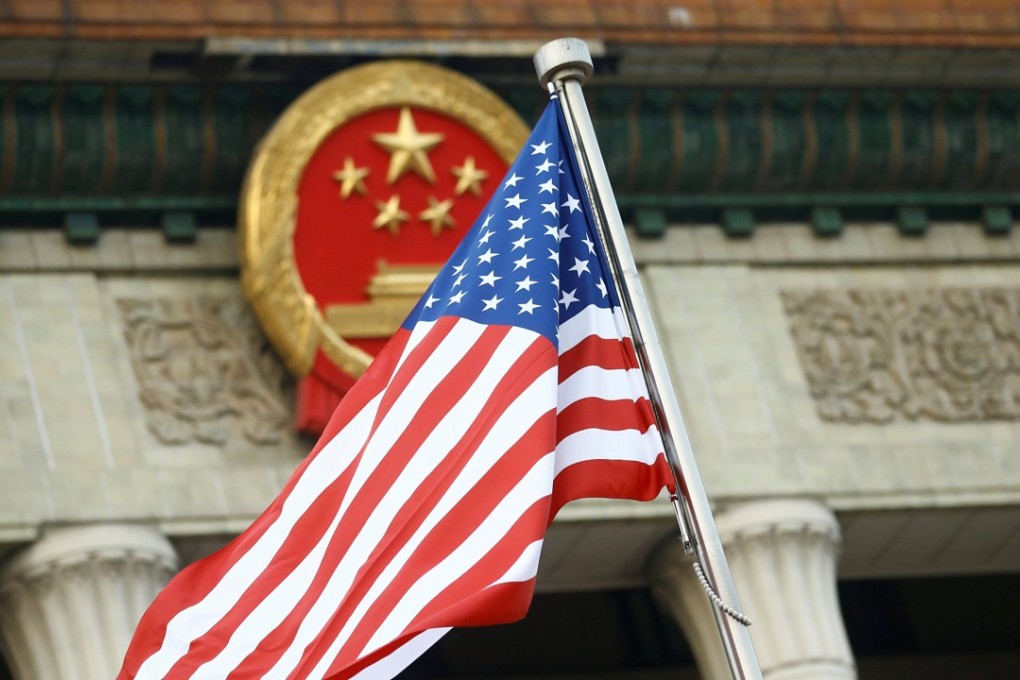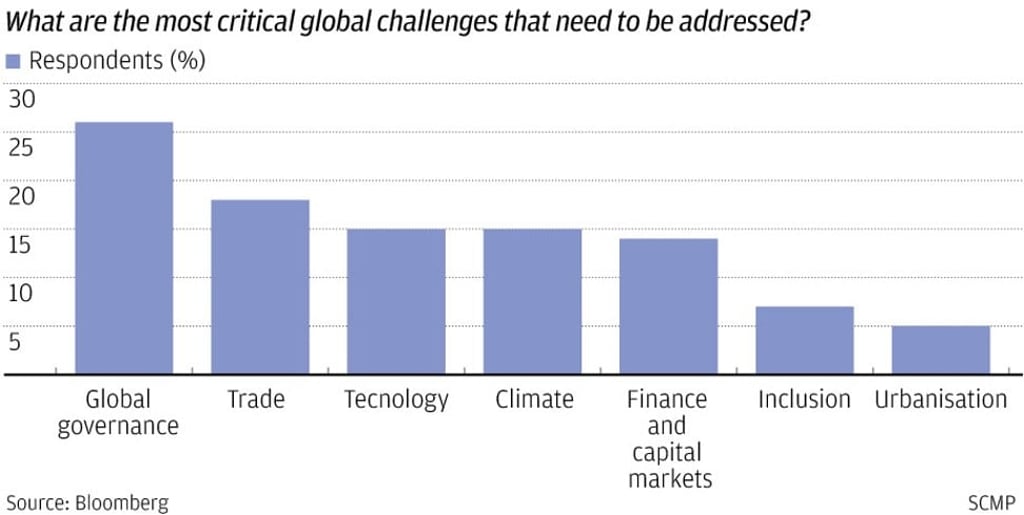Global survey offers insight into who will fare worse in US-China trade war
- Financial crisis, political and social instability, and employment are the three biggest concerns globally about the future economic order

A greater number of global white-collar workers believe the US will suffer more than China as a result of the intensifying US-China trade war, a Bloomberg survey has found.
As many as 20 per cent of mid to senior-level company employees around the world think the trade war will hit the US harder than China, while 14 per cent believe China will be the bigger casualty, the survey showed.
Another 34 per cent believe the trade war will hamper global growth broadly, while 13 per cent think it will reset the relations between the world’s two largest economies.

“It’s no surprise that political and social stability tops the list of concerns. From US tariffs to Brexit, shifting political currents are a key source of uncertainty and risk in the 2018 business environment. That shows no sign of abating,” said Tom Orlik, Bloomberg’s chief economist.